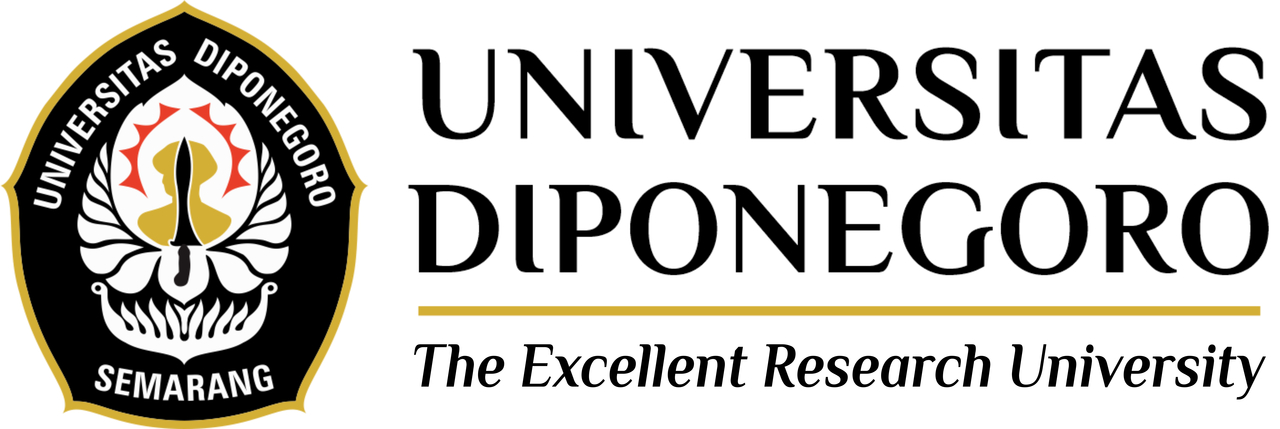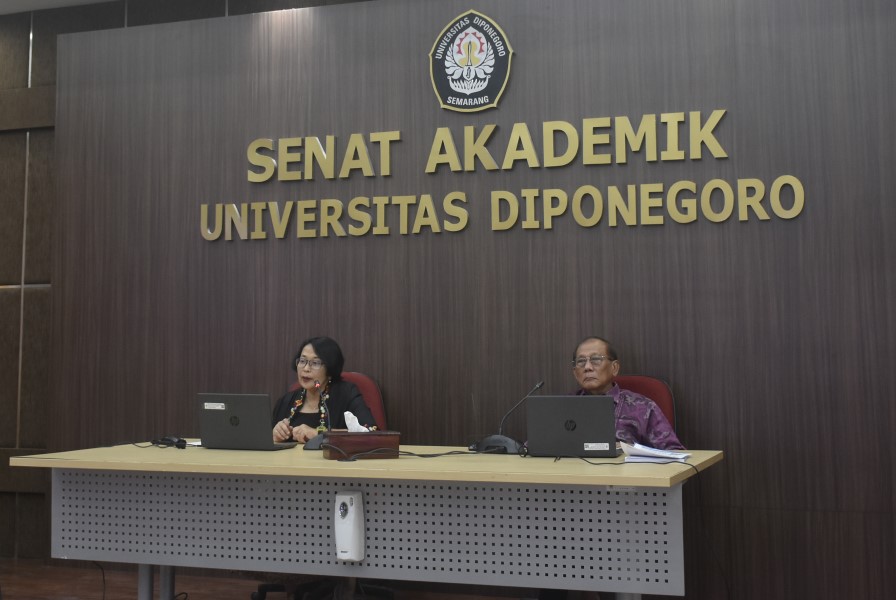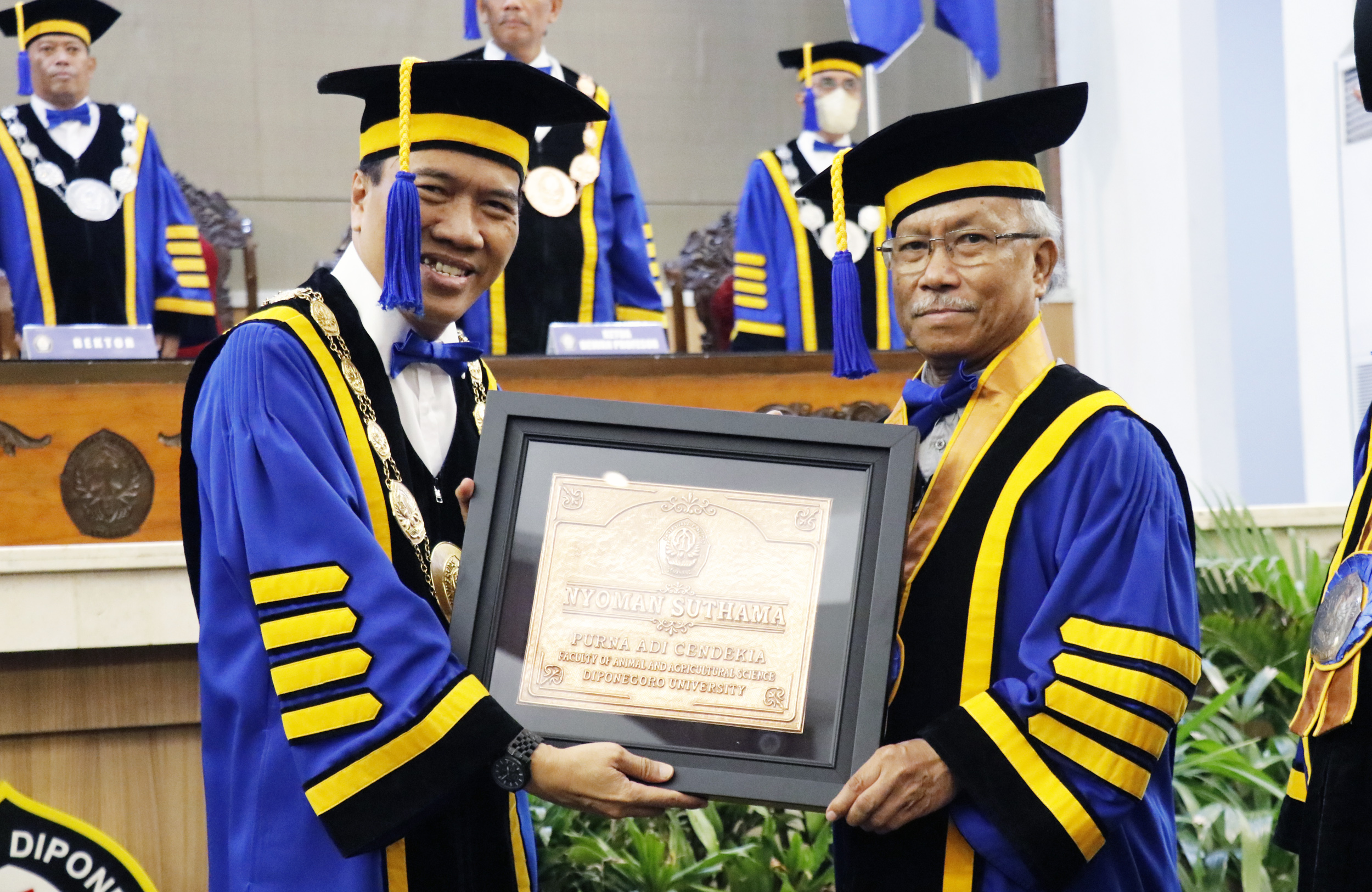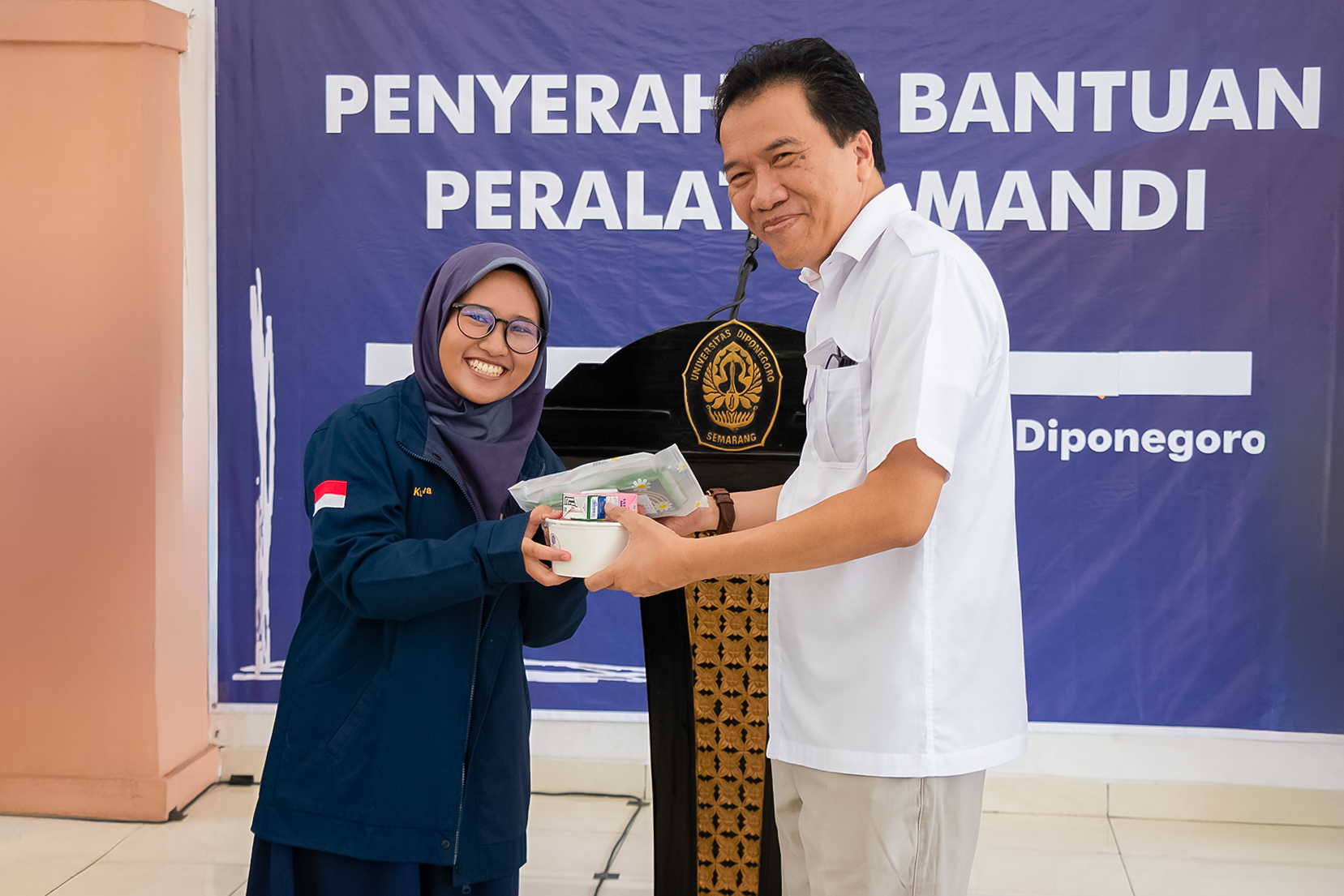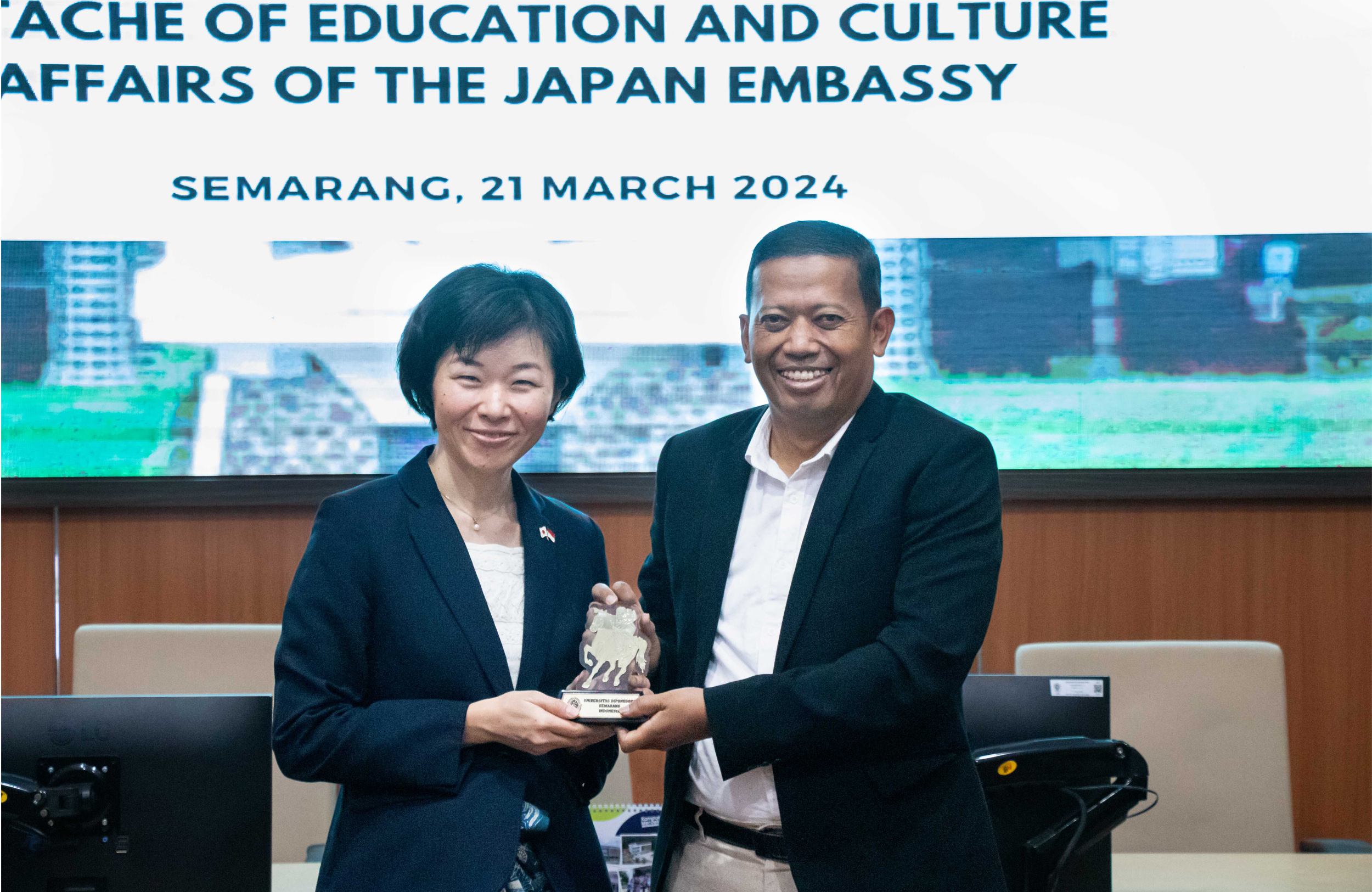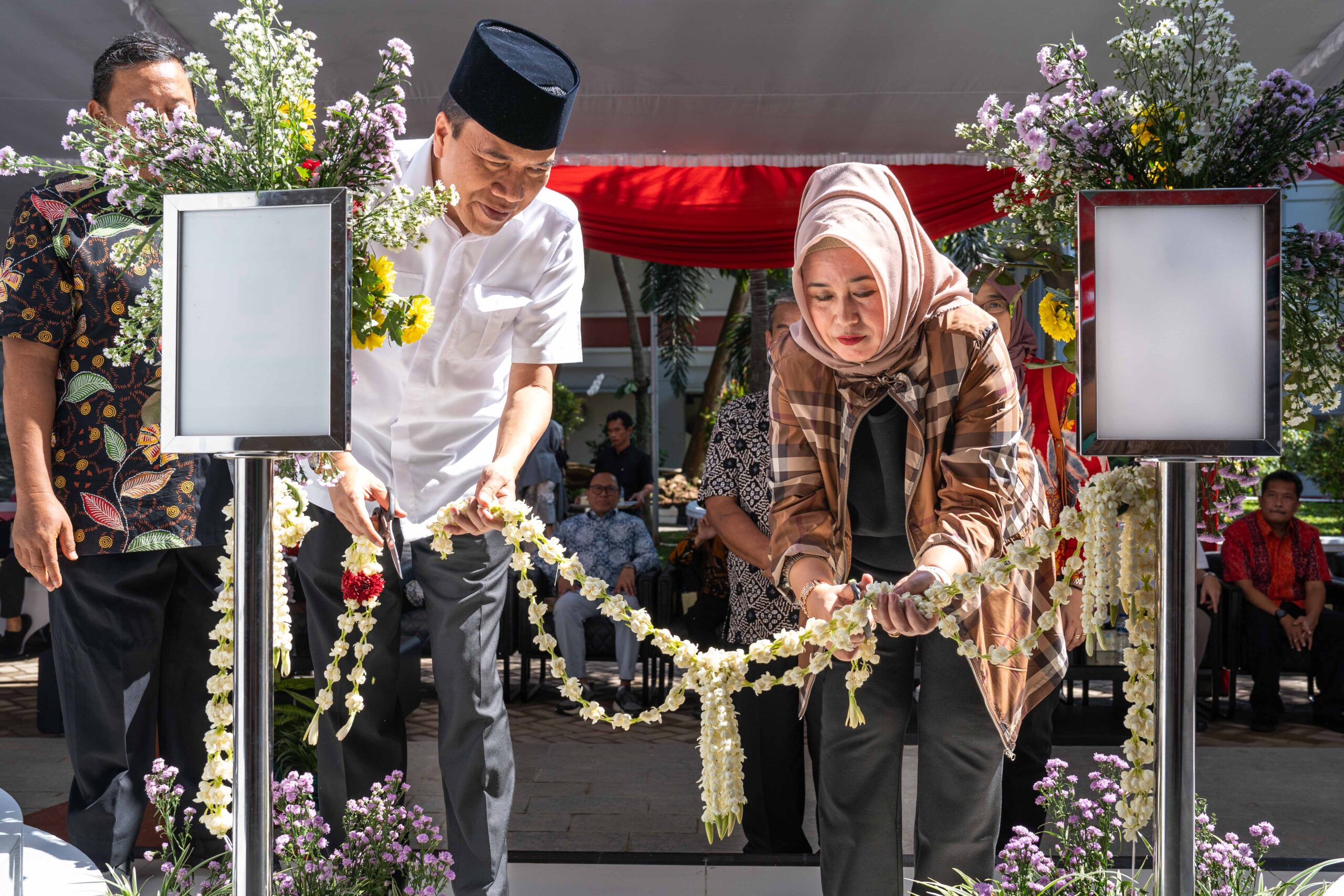Diponegoro University held a presentation of scientific papers by three prospective Undip professors organized by the Diponegoro University Board of Professors on Monday (19/6). The three prospective professors are Dra. Ani Margawati, M.Kes., Ph.D. (Faculty of Medicine), Dr. Eng. Ahmad Fauzan Zakki, S.T., M.T., IPM., MRINA (Faculty of Engineering), and Sugiharto, S.Pt., M.Sc., Ph.D. (Faculty of Animal and Agricultural Sciences).
In her material on the Anthropological Approach to Health as an Effort to Reduce Nutritional and Health Problems in Mothers and Children in Indonesia, Dr. Ani discussed that one of the fields of study of anthropology is health anthropology. Health anthropology is a branch of human science that studies aspects of human biology and culture (including its history) from the point of view of understanding medicine (medical), medical history (medico-historical), medical law (medico-legal), social aspects of medicine ( medico-social) and human health problems.
“Currently, in the era of globalization where there are changes in lifestyle and eating patterns, Indonesia is facing the triple burden of malnutrition, namely the occurrence of nutritional problems in the form of deficiency, excess, and imbalance of nutritional intake, both in mothers and children. Malnutrition refers to the incidence of stunting (which is marked by a lack of height for age), wasting (low weight for height), and underweight (lack of weight for age), as well as the incidence of micronutrient deficiencies caused by continuous malnutrition throughout the life cycle, especially in women of childbearing age; pregnant mother; breastfeeding mothers; baby; and toddlers,” she explained.
“The problem of maternal and child health nutrition in Indonesia is inseparable from problems of behavior, society, and culture. By carrying out health anthropology studies using qualitative methods that bring researchers closer to research subjects, it is hoped that they will get to the root of the problem that can be solved with various programs and interventions, especially changing people’s behavior, especially in mothers and children,” continued Dr. Ani.
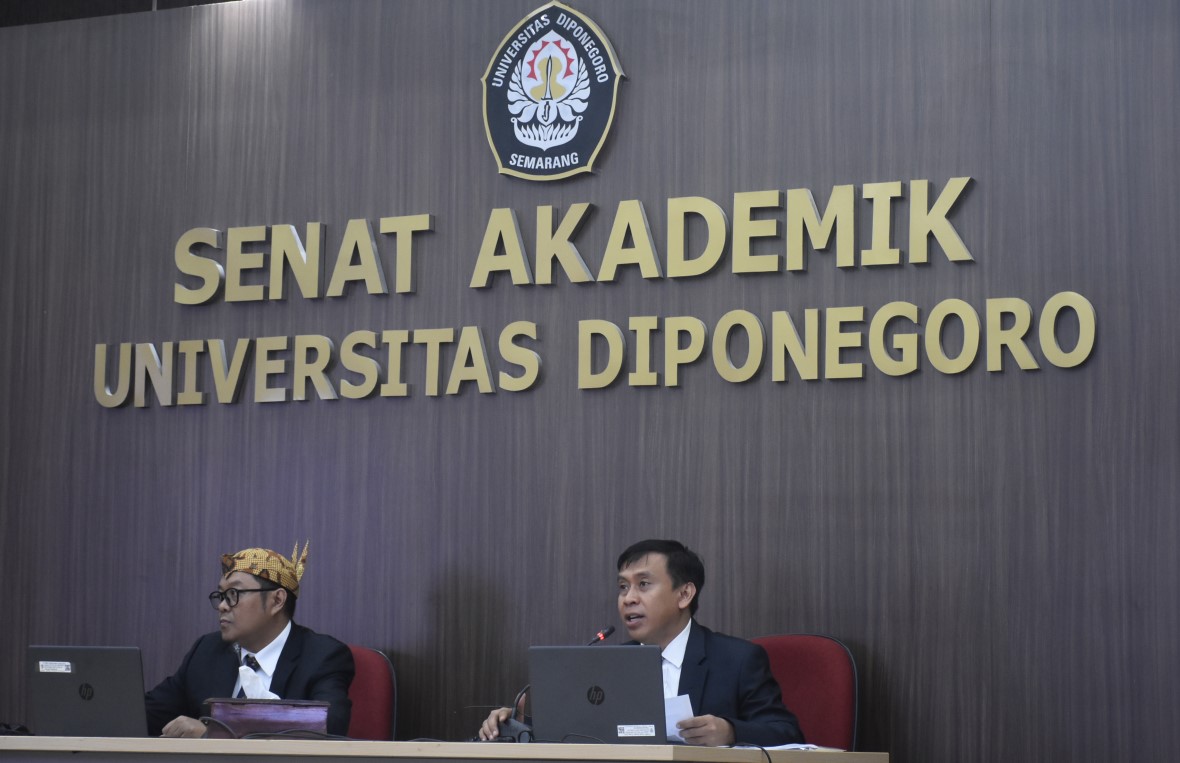
Meanwhile, Dr. Eng. Ahmad Fauzan Zakki, S.T., M.T., IPM., MRINA presented the Implementation of the Explicit Dynamic Finite Element Method in the Development of Free-fall and Tsunami Lifeboat Designs asked about disasters that occur in the marine and coastal environment, which can result in casualties. Accidents involving offshore structures, sinking ships, or natural disasters such as tsunamis have encouraged engineers to develop safety equipment in the form of lifeboats as a vehicle for evacuating victims from the disaster environment to a safe place.
“The development of safety equipment technology, especially lifeboats, must be supported by analytical tools capable of predicting or evaluating the performance of the proposed lifeboat design. The Explicit Dynamic Finite Element Method, especially the Arbitrary Lagrangian-Eulerian or ALE algorithm, is a numerical analysis method that is capable of providing solutions in predicting, assessing, and evaluating some of the main performance of a lifeboat design, so it is beneficial in the design process stages,” he explained.
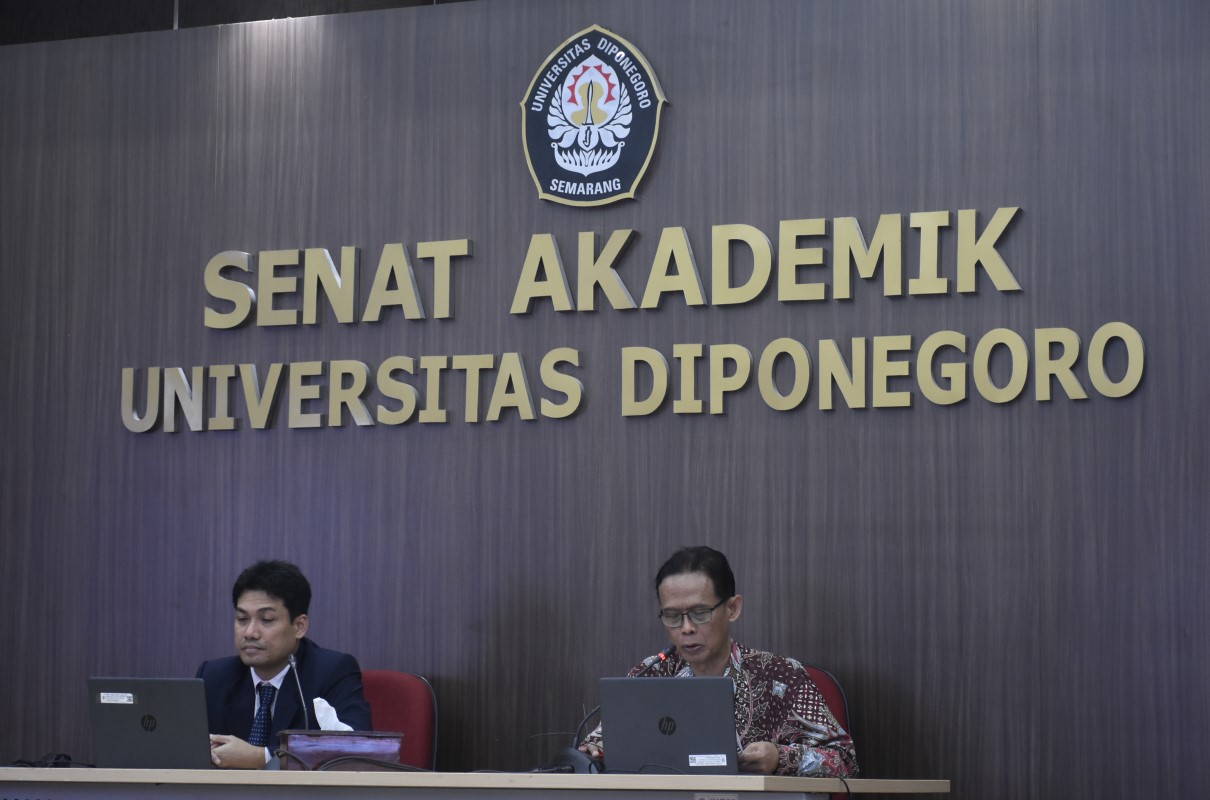
Sugiharto, S.Pt., M.Sc., Ph.D. presented the theme of Optimizing Poultry Physiological Conditions in the Post-Antibiotic Era Through Nutritive Interventions. According to him, the microbial population in the intestine has a major influence on the physiological condition of poultry. Nutritional intervention is a method to improve the balance of the intestinal microbial population to impact the physiological state of poultry positively. Many nutritional interventions include feed additives (e.g., probiotics, prebiotics, synbiotics, enzymes, phytobiotics, organic acids, antioxidants, and others), feed supplements, fermented feeds, and functional feeds.
“The combination of probiotics and acidifiers, probiotics and enzymes, phytobiotics and enzymes, plant-based materials and chitosan are some examples of combinations of feed additives with other active ingredients that show synergistic and complementary effects so that they can optimize physiological conditions compared to the use of feed additives or these active ingredients in poultry. Nutritional intervention is a method to improve the microbial balance in the intestine to impact the physiological condition of poultry positively. Combining feed additives with other active components can further optimize the physiological conditions of poultry related to the synergistic effect created by combining these ingredients,” concluded Sugiharto. (LW-Public Relations)
